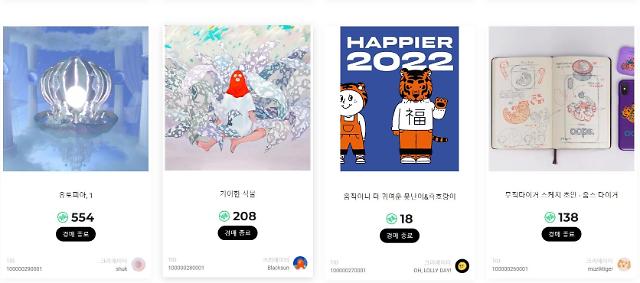
[Courtesy of WeMade]
NFT can represent a unique digital file such as art, audio, video, and an item in video games. It is authenticated using a blockchain platform and provides proof of ownership. Trading at most NFT exchanges is done through auction, limiting the liquidity of NFTs and making it difficult to combine NFTs with decentralized finance (DeFi) services.
Hyepesalt, which is scheduled to be released within the first quarter of 2022, gives liquidity by converting NFTs into general or compound tokens (cTokens). Compound is an algorithmic, autonomous interest rate protocol built for developers, to unlock a universe of open financial applications. cTokens accumulate interest through their respective exchange rate and, over time, each cToken becomes convertible into an increasing amount of its underlying asset, even while the number of cTokens in wallets stays the same.
WeMade said it has invested in Hyepesalt as a lead investor. If users own Klaytn-based NFTs, they can create an "NFT collection" through Hypesalt and liquidate them by issuing tokens corresponding to their collection. Any user can deposit their own NFT in the collection and become a "holder" to create and mint tokens. Minting is the term used to describe the process of turning digital files into nonfungible tokens that can be bought using cryptocurrency.
The more transactions are made in the collection, the more transaction fees and compensation are ensured, leading to an increase in the value of tokens and deposited NFTs. WeMade characterized Hypesalt as a unique model service that allows NFT, which was purchased due to expectations for price hikes but was not easy to sell, to be liquidated by putting it in a collection.
"We invested in Hypesalt because we thought it could increase the value of all NFTs," WeMade CEO Henry Chang said in a statement on February 3. "We look forward to expanding to various services in connection with NFT and DeFi in the WeMix ecosystem in the future."
WeMade, which has created "The Legend of Mir," a free-to-play fantasy massively multiplayer online role-playing game (MMORPG) based in an ancient oriental world, uses WeMix, a global blockchain gaming platform, to promote blockchain-based P2E games. WeMade's blockchain-based P2E game, MIR4, is available in 170 nations, not in South Korea.
Without relying on central financial intermediaries, DeFi utilizes smart contracts on blockchains. DeFi platforms allow people to lend or borrow funds from others, speculate on price movements on a range of assets using derivatives, trade cryptocurrencies, insure against risks, and earn interest in savings-like accounts. Transactions are directly between participants, mediated by smart contract programs using open-source software that can be easily copied to set up competing platforms.
There are no domestic or global standards, but experts stressed that South Korea should grow DeFi into a national strategic industry, saying it would provide an opportunity to lead a new financial system based on virtual assets and digital currency that will definitely come.
Through cooperation with game developers, WeMade aims to introduce 100 blockchain games that use WeMix tokens as key currency by the end of 2022. In December 2021, WeMade acquired SundayToz, a social and mobile game developer known for creating the Anipang series, to strengthen the lineup of casual games on the blockchain platform and expand the social casino genre.
In January 2022, WeMade partnered with RedFox Games, a U.S.-based software company that provides a game publishing service, to promote blockchain-based games, followed by a deal to invest in Syltare, a play-to-earn (P2E) trading card game that uses non-fungible token cards, as part of efforts to accelerate the creation of a new market that engages gamers and blockchain technologies.
P2E games are early-stage metaverse platforms that add innovative economic models that allow players to earn a steady income for playing. P2E games are usually powered by a blockchain, offering rewards and incentives to users based on their platform activity or related in-game achievements. As users earn cryptocurrency based on their gaming activities, they can exchange them for assets on exchanges.
Copyright ⓒ Aju Press All rights reserved.




View more comments